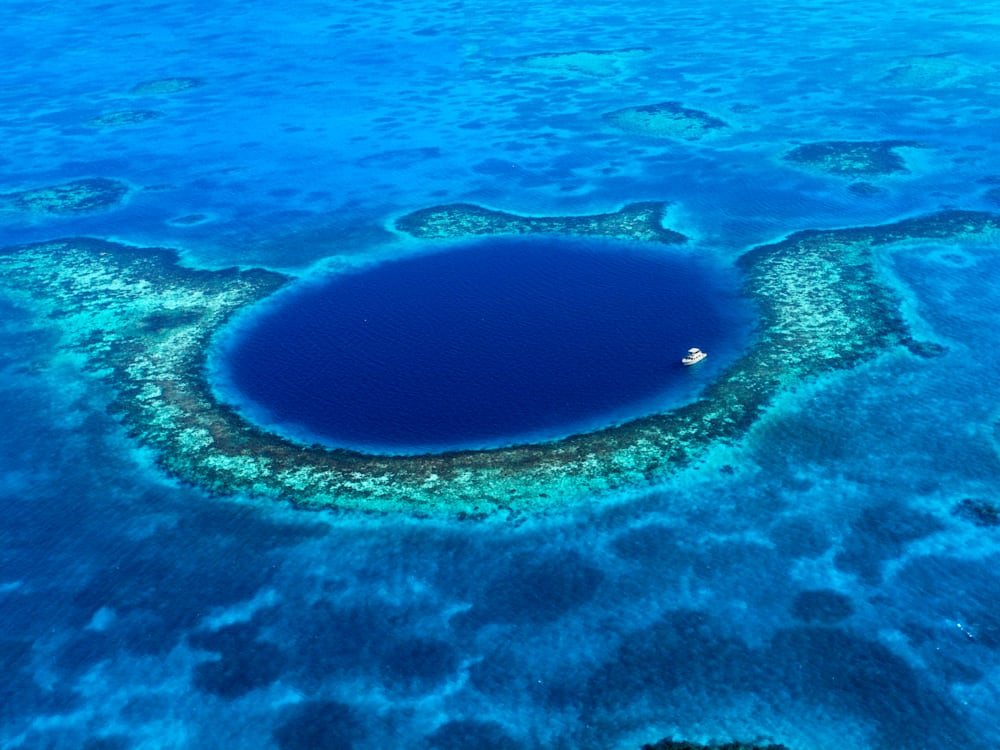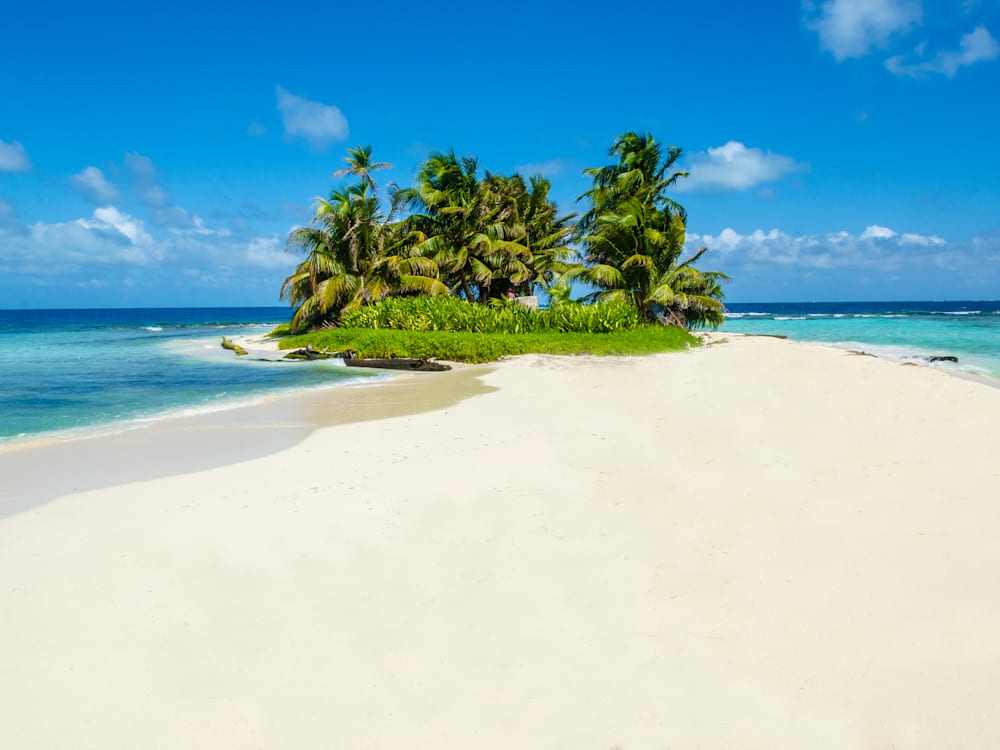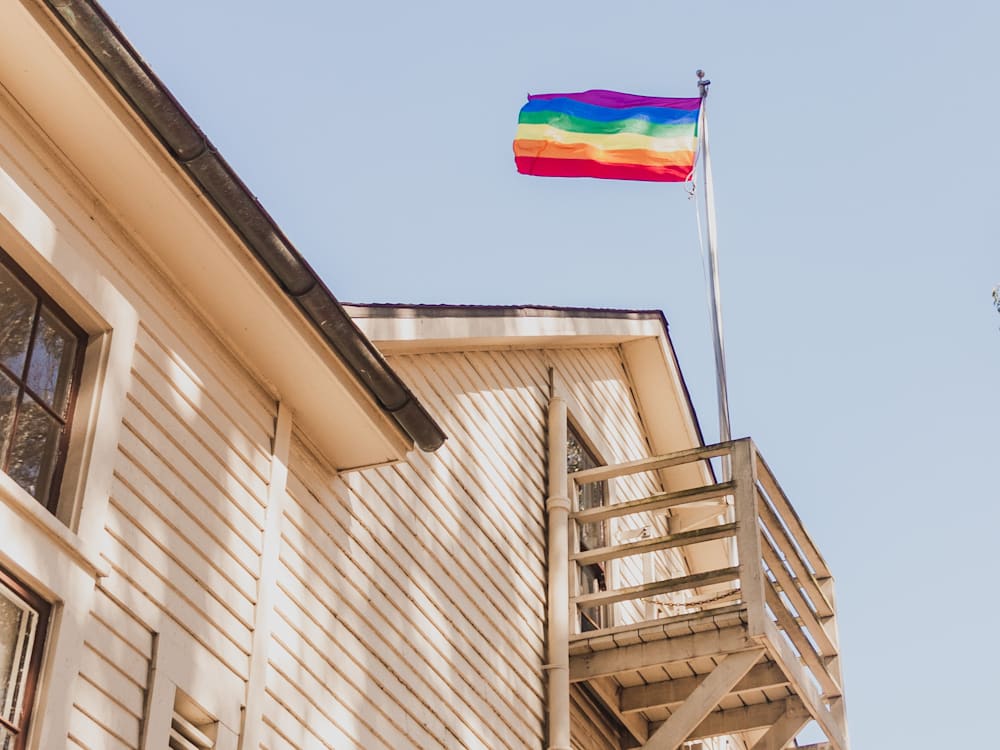We believe that the most difficult decision you should have to make when booking a holiday is which amazing hotel you should pick. It really should be that simple.
However, we recognise that for many in the LGBTQ+ community this isn’t the case, and choosing a dream destination can mean navigating discriminatory policies and practices, laws that add strict limitations, or could even be a true life or death decision.
This is why we’re supporting work of the Human Dignity Trust, whose tireless legal work helps to make travel accessible, easy, fun and romance-filled, for everyone. We spoke with chief executive Téa Braun to learn more about the Trust’s human rights successes, the leaps and strides countries around the world are making, and their tips for a safer trip.

Which countries have decriminalised and taken a step forward in protecting LGBTQ+ rights recently?
We’ve witnessed huge advances in the global movement to decriminalise LGBTQ+ people in recent years, with the number of criminalising countries falling from 71 to 67 in 2022 alone.
Last summer, a wave of change swept across the Caribbean, with a court in Antigua and Barbuda decriminalising in July, followed swiftly by a court in Saint Kitts and Nevis in August. In Antigua and Barbuda, same-sex sexual activity was prohibited for both men and women under ‘buggery’ and ‘serious indecency’ laws.
In Saint Kitts and Nevis, consensual sexual activity between men was prohibited under a similar ‘buggery’ provision, referring to it as ‘the abominable crime’. ‘Attempts’ to commit the ‘infamous crime’ were also criminalised.
In both instances, the courts last year held that these criminal provisions were unconstitutional, striking the laws off the books as a violation of fundamental human rights.
In late 2022, these cases were followed by decriminalisation through the court in Barbados, which struck down the ‘buggery’ and ‘indecency’ laws. These moves brought the number of criminalising countries in the Western Hemisphere down to just six.
Singapore also decriminalised last year by officially repealing the colonial-era law that since 1938 had criminalised acts of ‘gross indecency between males’. The move was prompted by over a decade of court cases challenging the constitutionality of the gross indecency law, and came in relatively close succession after India, which decriminalised in 2018, and Bhutan, which decriminalised in 2021.

Can you give us an example of a country that has decriminalised and your involvement?
We’ve been working with our partners in Belize since the inception of the Trust, and our work there demonstrates just how much change is possible.
It all started in 2010 when Caleb Orozco, a Belizean gay man and a prominent human rights defender, filed a challenge in the Supreme Court of Belize to a provision that criminalised ‘carnal intercourse against the order of nature’, which captured consensual same-sex sexual activity between males.
We were invited by Caleb to join the litigation as an ‘interested party’, which we did in early 2011, to provide support to Caleb and his legal team. The case was heard in May 2013 and the court agreed with all our arguments, striking down the buggery provision as a violation of the rights to dignity, privacy, equality, and non-discrimination on grounds of sex and freedom of expression, in a landmark judgement issued in 2016 – the first of its kind in the Caribbean region.
The case did not end there, however, as after significant pressure from the churches the Attorney General appealed the judgement. The Court of Appeal upheld the earlier ruling in 2019, ending almost a decade of litigation.
We were in the courtroom with Caleb over four intense days back in 2013, and outside of court we watched the local media covering the case daily in all mainstream outlets and saw in real time how attitudes were shifting and people were starting to question why these laws existed in the first place. What was once a taboo subject was suddenly top of mind in the national consciousness, and although virulent opponents also aired their views, the voices of fairness, tolerance and human rights ultimately won the day.
This case has had a significant impact internationally; for example, the judgement was cited by the Supreme Court of India when it too struck down criminalisation. And it provided the impetus for several more court cases across the region, such as the three successful cases mentioned above in Antigua, Saint Kitts and Barbados, creating a perfect tidal wave of decriminalisation and liberation for LGBTQ+ people that is still ongoing.

As legal change is being affected, how do you also use media as a tool to change attitudes?
We know that legal change can have a better chance of success where public attitudes to LGBTQ+ people are more tolerant, and that local influencers of change need to be in control of the messaging around any legal work. To create enabling environments for this change, our core legal work is accompanied in almost all jurisdictions by support for sophisticated media, communications and public education campaigns.
We have carried out bespoke media and communications training in more than a dozen jurisdictions and have collaborated with our partners to design communications plans and messaging strategies to complement their work in support of LGBTQ+ human rights.
Recognising the power of film to reach new and engaged audiences, we have also invested in documentary film. We have also expanded our work to help partners craft effective ways to reach hearts and minds, sensitise large swathes of their population and measurably shift attitudes in relation to LGBTQ+ people and other vulnerable groups.
In the context of our work in support of legislative reform in Belize, this took the form of a large-scale, nationwide public education campaign in support of equal opportunities for all.
Using research generated through focus groups with everyday citizens, to devise values-based messaging, we created nine public service announcements (PSAs) addressing discrimination against women and girls, people with disabilities and LGBTQ+ people.
By rolling out the PSAs across all major TV and radio stations, as well as on social media, we reached 70 per cent of the country’s population. Furthermore, through regular national polling, we have collected quantitative evidence to show a majority of Belizeans now support anti-discrimination legislation and there is a growing acceptance of LGBTQ+ people and other vulnerable groups.

What advice can you give to LGBTQ+ travellers?
Many won’t realise that 67 countries across the world, including several which are famous holiday destinations, still criminalise same-sex sexual activity and may also criminalise transgender expression. When choosing a travel destination, check the status of the law using our Map of Criminalisation. You can see if the country criminalises LGBTQ+ people, how the laws are enforced and how LGBTQ+ people are treated.
Consider supporting destinations that have taken meaningful steps to progress the safety and legal protection of LGBTQ+ people (including those that have decriminalised). If you’re travelling to a criminalising country, obviously take steps to protect yourself, and find out who the local LGBTQ+ charities are to whom you might donate to show solidarity and support their vital work.
Visit humandignitytrust.org to find out more about their pioneering work
As told to Kate Weir



